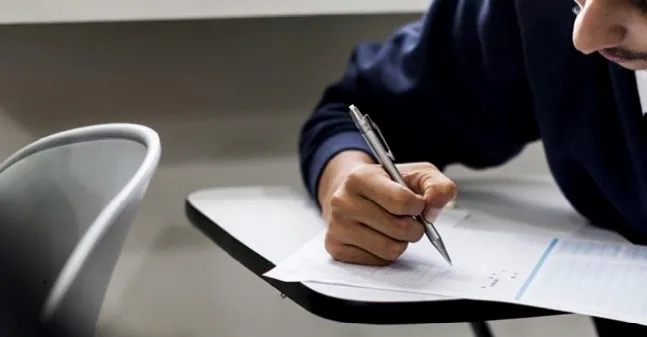Abu Dhabi: The UAE Ministry of Education has issued a detailed guide regulating end-of-year examinations, clearly outlining disciplinary measures for students who breach the integrity of the centralised exam system. Offenses are categorised into two levels: first-time violations and repeat offenses.
According to the official code of conduct, first-time violators will face strict penalties, including a deduction of 12 behaviour marks, a grade of zero in the subject where the cheating occurred—whether through direct cheating, collaboration, or deliberate tampering with the exam paper—and disqualification from sitting a make-up exam for that subject. In addition, parents will be summoned to sign a formal warning.
In cases of repeat violations, disciplinary actions become more severe: an additional 12-point deduction in behaviour marks, a zero grade recorded across all subjects, permanent disqualification from any make-up exams, and immediate parental notification for signing an official warning and disciplinary decision. Moreover, the student’s case will be referred to behavioural correction programs in cooperation with the relevant authorities, depending on the circumstances.
The Ministry urged parents to educate their children on the importance of adhering to exam regulations and avoiding actions that could jeopardise their academic future. Students are also reminded to follow all in-hall instructions strictly.
Previously, the Ministry had announced the schedule for the end-of-year (second session) exams for adult education students in the 2024–2025 academic year. These exams are set to begin on Monday, June 23, and will continue until Thursday, July 3.
Specialised technical teams to monitor social media for cheating
The Ministry also confirmed that dedicated technical teams will actively monitor social media platforms during the final exams of the third term (2024–2025) to detect any cheating attempts or breaches that could undermine the integrity and credibility of the assessment process.
Anti-cheating manual released
Through the newly launched Academic Integrity and Exam Misconduct Manual (First Edition) for the 2024–2025 academic year—distributed to schools nationwide—the Ministry emphasized its zero-tolerance policy against cheating. It has enhanced its electronic exam systems to prevent leaks and ensure that no unauthorized modifications are made to students’ responses, with random samples undergoing review to verify exam integrity.
Clear responsibilities and accountability
The manual—published on the Ministry’s official website—defines clear roles, responsibilities, and penalties for students, exam staff, and even parents in cases where involvement is required. It emphasizes thorough understanding and implementation of preventive procedures, proper responses in case of violations, and strict adherence to ethical and behavioral guidelines before, during, and after exams.
Upholding integrity and academic honesty
The manual reiterates the Ministry’s commitment to fostering a fair and transparent exam environment grounded in the values of honesty and integrity. Academic cheating is explicitly labeled a direct threat to the quality of education and a violation of the foundational principles the Ministry aims to instill in students. It also sets out clear reporting, investigation, and accountability procedures for all stakeholders.
Procedure for handling cheating cases
The guide details the step-by-step process to be followed when a cheating case or exam system breach is detected—whether by students or staff. These include immediate reporting, investigation, evidence collection, and referral to the competent authorities. Punishments may range from written warnings to expulsion from duty (for staff) or disqualification from exams (for students).
Strict prohibitions during end-of-year exams
The Ministry has outlined strict rules and mandatory instructions for students attending adult education final exams. These include:
Mandatory early attendance
Students must arrive well before the exam begins, allowing for:
- Mental and emotional readiness
- Time for supervisors to verify identities and complete registration
- Prevention of delays, as late entry is not permitted
- Maintenance of order within the exam hall for better focus
Ban on mobile phones and smart devices
Bringing mobile phones, smartwatches, and other electronic devices into exam halls is strictly prohibited to:
- Prevent cheating through communication or unauthorized searches
- Minimise distractions and enhance focus
- Avoid disruptions from notifications or calls
No entry after exam start time
Students arriving after the scheduled start will not be allowed to enter. This ensures:
- Exam fairness and integrity
- Elimination of potential exploitation of post-start time
- A disruption-free environment for on-time students
Personal supplies required – no sharing
Students must bring all necessary supplies individually. Sharing is strictly forbidden to:
- Maintain exam order and discipline
- Prevent opportunities for cheating or delays
- Avoid interruptions that could affect performance
Failure to bring required materials may impact a student’s ability to complete the exam effectively and could negatively influence their academic results.



